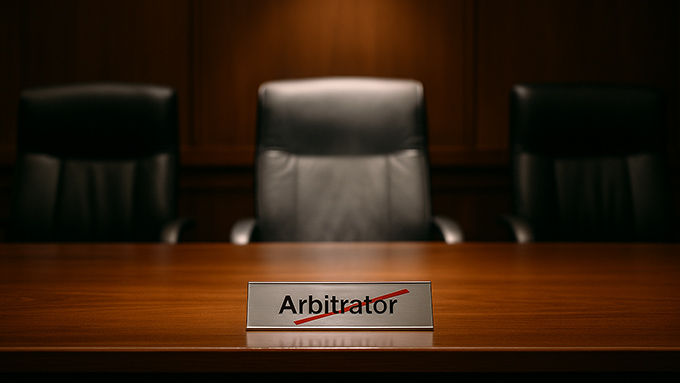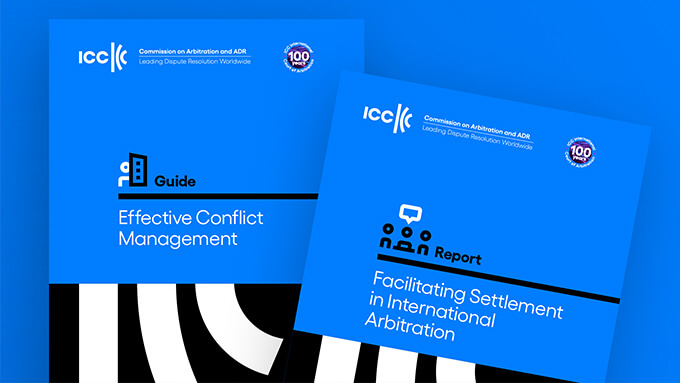Dispute Resolution in the Digital Age
Introduction
Arbitration has benifited from a great increase in the use of technology which has directly effected the conduct of proceedings. More particularly, with digitalization, the way that we conduct arbitration proceedings has been changed to reflect the current needs of parties, with an aim of increasing time and cost efficiency. In line with these needs, and as a measure against the COVID-19 pandemic, virtual hearings have become common.
The general awareness of environmental issues has also been a subject matter discussed in the legal industry. There have been global initiatives, such as the signing of the Paris Agreement on climate change, as well as trends to reduce carbon footprints and so-called “green pledges.”
Accordingly, this article deals with (i) virtual hearings (ii) electronic submissions and (iii) the green pledge.
Virtual Hearings
COVID-19 caused arbitrators, parties, arbitral institutions, and all participants to adapt to new conditions. Virtual hearings are among the tools participants discovered during the pandemic. Various institutions have had different approaches, where some canceled or delayed hearings and some, such as the International Chamber of Commerce (“ICC”), adapted very rapidly and published guidelines, both on the effects of COVID-19 and on virtual hearings to assist its users.
The Guidance Note on Possible Measures Aimed at Mitigating the Effects of the COVID-19 Pandemic (“ICC Guidance”) is a good example. Besides the ICC Guidance, another important tool is the Seoul Protocol on Video Conferencing in International Arbitrations. This protocol provides useful recommendations, mainly on documents, venue, witnesses, observers, technical issues, interpretation, and recording. The American Arbitration Association (“AAA”) also published virtual hearing guides, orders, and procedures.
The ICC Guidance is not only related to virtual hearings, but rather covers a wide range of issues. What comes across as interesting is that, early in 2020, the ICC regulated virtual hearings explicitly in its 2021 Arbitration Rules. Even though this revision was made prior to the COVID-19 pandemic, the timing of the 2021 ICC Rules of Arbitration fit very well with the needs of practitioners. Even before the revision, the wide discretion given by the ICC to arbitral tribunals allowed for the conduct of virtual hearings. Currently, this issue is regulated explicitly in Article 26 of the 2021 ICC Rules of Arbitration, which states that hearings can be conducted remotely by videoconference, telephone, or other appropriate means of communication.
The ICC Guidance provides tips to users by focusing on cost and time-effective measures. It recommends procedures to ensure due process. There are certain practical issues an arbitral tribunal should consider: the type of the hearing, multiple time zones, travel barriers, the duration of the hearing, the number of parties/experts/witnesses, whether the hearing will be recorded, the need for language interpretation, the procedure for taking evidence, and the use of electronic hearing bundles are just some of them. The ICC Guidance further recommends that parties agree on a cyber protocol and lists suggested provisions. This is an important document and a tool that parties should consider complying with, as it deals with issues such as data privacy rules and ensuring cybersecurity.
There is no doubt that one of the biggest advantages of virtual hearings is the reduction of costs. One of the major drawbacks of arbitration is the costs associated with it, and thus this is a very sensitive issue. Accordingly, arbitral tribunals must pay attention to costs when deciding on procedural considerations.
Another important consideration is the enforceability of the award. In this respect, it should always be kept in mind that having a virtual hearing should never be an obstacle before the enforcement of the award. This issue can arise especially if parties do not want to hold a virtual hearing, or if one of them does not and an arbitral tribunal decides to do so anyway. An arbitral tribunal can decide to hold a virtual hearing even if the parties do not agree; in this case, the arbitral tribunal when making a decision should consider the circumstances and make sure that equality of the parties and due process is ensured.
There are benefits of virtual hearings, but these do not come without concerns. It is fair to say that overall, the experience has been very positive for most participants, and the demand for conducting virtual hearings is increasing. All participants have learned from the procedural deficiencies and have gained experience. Major concerns that capture attention are ensuring due process, difficulty in giving oral submissions and cross-examining witnesses, cybersecurity, and data protection.
Due process is a concern, as it can be more difficult to ensure equality between the parties in a virtual hearing. For example, if an arbitrator does not pay attention to the time zones of the parties, it risks creating a privilege for one of them. Therefore, utmost diligence should be paid to every detail. Practitioners are also adapting and learning new techniques for giving oral submissions and cross-examination. With the decreased use of gestures and eye contact, the sequence of questions directed to witnesses as well as the usage of demonstrative exhibits will play an important role in virtual hearings. The technical infrastructure is also vital: slow internet connections or lack of technical support may result in due process concerns. Experience shows that parties may be inclined to turn off their cameras during the hearing because of a slow internet connection, which can raise questions as to the identification of the person testifying. With experience and more detailed regulations, guidelines, and notes published by arbitral institutions, procedural obstacles may be overcome and the conduct of efficient virtual hearings will undoubtedly increase.
Electronic Submissions
It is safe to say that digitalization of arbitration and the use of Information Technology (IT) solutions shall inevitably contribute to a greener arbitration. A report dealing with Information Technology in International Arbitration prepared by the ICC Commission on Arbitration and ADR, dated 2017, shows that IT solutions are not widely used in international arbitration. However, that does not mean there are no efforts to increase the use of IT solutions. Within this context, document management systems are worth mentioning. These platforms encourage parties to refrain from printing all sorts of documents. With the increased use of technology, online bundles have become more popular as well.
A good example of a document management system is the NetCase platform, which was a document management platform that allowed parties to electronically follow the course of the arbitration. The NetCase platform was presented by the ICC as early as 2005, but has been abandoned. However, the ICC has announced that parties will soon be able to rely on fully digitalised services through a new case management platform, which will allow documents such as terms of references and awards to be concluded electronically. This platform will also allow parties to be notified electronically.
Currently, there are other arbitral institutions that offer such systems, such as the AAA, World Intellectual Property Organizastion, and Stockholm Chamber of Commerce. These systems also provide for more efficient and cost-effective arbitral proceedings. It is also noteworthy that many institutions, including the ICC, have allowed electronic submissions during the COVID-19 pandemic as also provided for under the ICC Guidance.
Similar to other institutions, under the ICC Rules of Arbitration, arbitral tribunals have the power to decide whether or not to order the production of documentary evidence, including electronic documents, and to manage any such process in a fair and efficient way. The ICC Arbitration Commission Report on Managing E-Document Production is also worth reviewing by practitioners. Arbitral tribunals consider various issues when making orders related to production of documents, and it is safe to say that these days, more environmentally friendly choices are being made by arbitral tribunals.
As a result of concerns about cybersecurity, data security, and drafting procedural orders related to usage of platforms, a working group including practitioners from different law firms was established. This working group prepared the Protocol for Online Case Management in International Arbitration (“Protocol”). The Protocol seeks to deliver a globally consistent approach to the use of online case management platforms in international arbitration.
Apart from these platforms that arbitral institutions offer, there are various programs available that may be used by practitioners. The International Bar Association (“IBA”) provides guidance related to these platforms. As stated by the IBA, there are platforms which allow practitioners to host, manage, organise, sort, and transfer voluminous documents and submissions gathered and/or exchanged in an arbitration.
The Green Pledge
It is clear that the awareness of environmental issues including the reduction of carbon footprints has increased recently. This increase of awareness can be classified as a global trend that includes not only efforts from the legal industry, but from various other industries. The efforts to make arbitration more environmentally friendly includes the Green Pledge.
The Green Pledge seeks to raise awareness of the significant carbon footprint of the arbitration community, and aims to encourage all arbitration practitioners to commit to the Campaign for Greener Arbitrations’ Guiding Principles and to reduce their carbon emissions. The Guiding Principles set out examples that may be easily implemented by practitioners. These include creating a work space with a reduced environmental footprint by looking for opportunities to reduce energy consumption and waste, and corresponding electronically, unless hard copy correspondence is expressly needed in the circumstances. Practitioners should also be mindful that email has a carbon footprint when requesting the use of electronic rather than hard copies of documents. Practitioners should also promote the use of electronic bundles at hearings, and use suppliers and service providers (for example when arranging an arbitration hearing) who are committed to reducing their environmental footprint. The Guiding Principles also mention the use of videoconferencing facilities as an alternative to travel, which includes holding virtual hearings rather than in person hearings, a topic dealt with above.
A similar approach is seen in mediation. The Mediators Green Pledge, which was inspired by the Campaign for Greener Arbitrations and its Green Pledge, was launched in October 2020.
Conclusion
The digitalisation of arbitration is expected to result in reduced costs, reduced carbon footprint, and an increase in the efficiency of proceedings. Virtual hearings, electronic submissions, document management systems, and the platforms established by the arbitral institutions, will all play a vital role in reaching such expectations.
All rights of this article are reserved. This article may not be used, reproduced, copied, published, distributed, or otherwise disseminated without quotation or Erdem & Erdem Law Firm's written consent. Any content created without citing the resource or Erdem & Erdem Law Firm’s written consent is regularly tracked, and legal action will be taken in case of violation.
Other Contents

Emergency arbitration addresses the need for interim protection before the arbitral tribunal is constituted in institutional arbitrations. Arbitral institutions establish short timeframes to ensure parties can obtain interim relief quickly. For example, the International Chamber of Commerce (“ICC”) requires that the emergency...

International arbitration remains the preferred mechanism for resolving complex cross-border disputes. Yet despite its advantages—neutrality, enforceability, flexibility—arbitration is frequently criticized for being too slow, too expensive, and too procedurally heavy. Often, parties proceed through hearings and...

For arbitral awards rendered in international commercial arbitration to produce legal effects in foreign jurisdictions, they must be subjected to proceedings for “recognition” and “enforcement.” This process is governed by the New York Convention as well as by the provisions of the Law on Private International Law...

Arbitrability, the determination of whether a specific subject matter can be resolved through arbitration, constitutes a fundamental aspect of arbitration within the scope of international commercial dispute resolution. This concept draws a delicate balance between party autonomy—a fundamental principle of arbitration...

The recognition, enforcement, and annulment of foreign court and arbitral awards in Türkiye are processes in which public policy emerges as one of the most critical criteria for review, both in theory and in practice. The Court of Cassation decisions determine the direction of case law regarding the scope and...

As is well known, the action for annulment of objection is a special type of lawsuit regulated under Article 67 of the Turkish Execution and Bankruptcy Law No. 2004 (“EBL”). The primary objective of this action is to nullify a debtor’s objection to execution proceedings. Despite its procedural function of facilitating...

On 16 December 2024, the London Court of International Arbitration (“LCIA”) released its third batch of challenge decisions covering the period from 22 July 2017 to 31 December 2022. The LCIA has also issued a detailed commentary that identifies key legal themes and analytical trends, offering practitioners...

The International Chamber of Commerce (“ICC”) has published its report on the dispute resolution statistics for 2023 (“Report”) , shedding light on the evolving landscape of international arbitration...

Syndicated loans undoubtedly hold a significant position among global financing models. In 2023 alone, 3,655 syndicated loans were provided to companies in the US, with their total value reaching USD 2.4 trillion...

Preliminary attachment refers to the temporary seizure of a debtor's assets to secure a creditor's claim. While it serves as a vital instrument for safeguarding the rights of creditors, it is subject to specific and stringent conditions under Turkish law to prevent any potential misuse...

One of the most important reasons for parties to choose arbitration is the opportunity to freely choose their arbitrators. This freedom granted to the parties also distinguishes arbitration from proceedings before state courts, where the parties are deprived of the power to determine the judges who will conduct the...

The 6th Civil Chamber of the Court of Cassation ruled on October 12, 2022, that national courts have jurisdiction over objections to provisional measures in international arbitration disputes...

The declaration of intent to resolve disputes through arbitration is the fundamental constituent element of an arbitration agreement. To speak of a valid arbitration agreement, the parties' intention to arbitrate must emerge in a way that leaves no room for dispute...

In the wake of the evolving dynamics of commercial transactions, the Netherlands Arbitration Institute Foundation (NAI) announced new arbitration rules . 2024 NAI Arbitration Rules are in force as of 1 March 2024 and will be applicable on proceedings filed on or after this date...

With the global shift to online activities, domain names play a crucial role in identifying businesses. It is more common than ever for a domain name to be registered that is confusingly similar to a trademark or service mark...

The ICC Commission on Arbitration and ADR (“Commission”) published a new guide and report with the aim to increase awareness on alternative dispute resolution (“ADR”) mechanisms to prevent disputes and strengthen the relationship between all stakeholders.The Guide on Effective Conflict Management...

Mergers and Acquisitions (“M&A”) are restructuring of companies or assets through various types of financial transactions, such as mergers, acquisitions, purchase of assets, or management acquisitions. This Newsletter article covers M&A disputes being solved before arbitral tribunals.

In the context of arbitration practice, the principle of revision au fond means that the courts can not examine the merits of a dispute when reviewing an arbitral award. This principle is most commonly encountered in set aside and enforcement proceedings. An arbitral award is evidence of the parties’ willingness...

Under Turkish law, parties may agree on the settlement of disputes that have arisen or may arise, regarding the rights that they can freely dispose of, by arbitration. However, disputes which are not subject to the will of parties, such as the disputes relating to in rem rights of immovables, bankruptcy law...

On 4 September 2020, a research project “Does a Right to a Physical Hearing Exist in International Arbitration?” was launched by an International Council for Commercial Arbitration (“ICCA”) taskforce. Due to the Covid-19 pandemic, many arbitration hearings were held online. Many institutional rules...

Dubai International Arbitration Center amended its Arbitration Rules on 25 February 2022. The 2022 Arbitration Rules were published on 2 March 2022 and came into effect on 21 March 2022. The Rules will be applied to arbitrations that are filed after 21 March 2022; unless parties agree otherwise...

In the aftermath of the Achmea decision, controversies on intra-EU arbitrations continue. Most recently, the Paris Court of Appeal has annulled two arbitral awards rendered against Poland. Meanwhile, the Higher Regional Court of Berlin has refused to declare that an Irish investor’s ICSID claim...


Under Turkish law, the legal remedy that can be applied against arbitral awards is an annulment action. Law on International Arbitration No. 4686 (“IAL”) finds its application area in arbitration proceedings where Turkey is the place of arbitration...

It is well known that following a decision of the Court of Justice of the European Union, problems arose related to arbitration of intra-EU disputes, and particularly arbitration under the Energy Charter Treaty...

Arbitration in corporate law contains controversial elements in many respects, especially the issue of arbitrability. Even in legal systems where these disputes are considered to be arbitrable, uncertainties remain on whether an arbitration clause can be included in the articles of...





































































